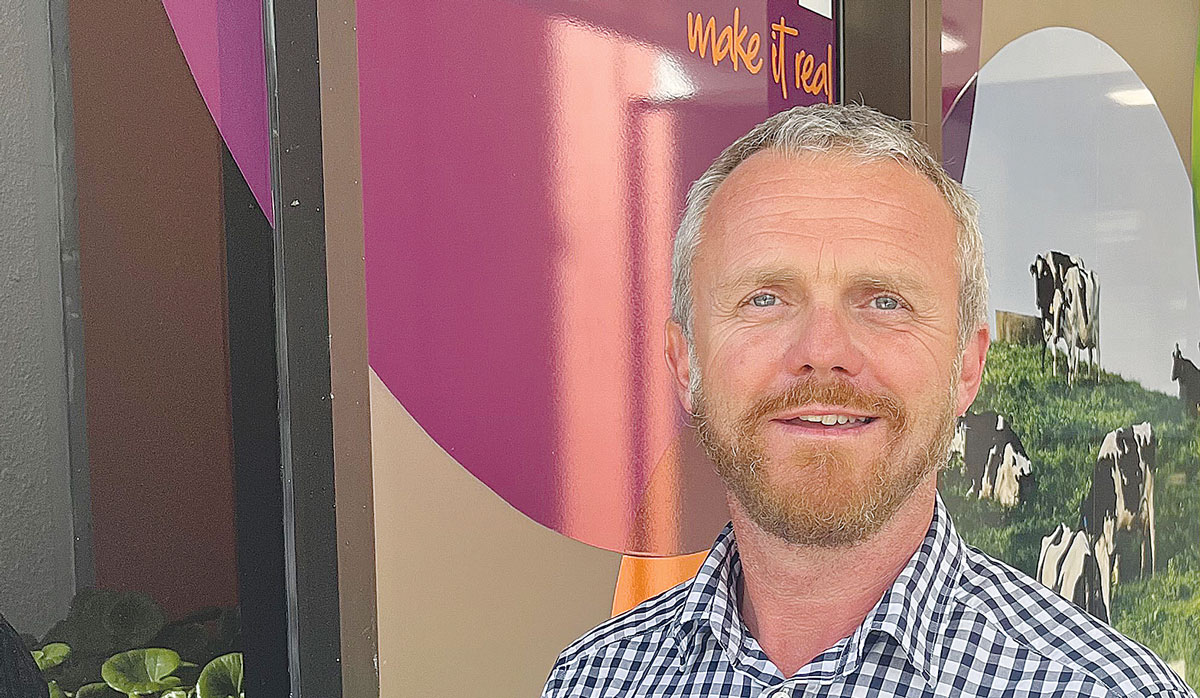New plant first step in a long journey - ofi
The Singaporean conglomerate behind New Zealand’s newest milk processing plant says this is the first step in a long journey.
Waikato's newest milk processing plant is on track to start operating in July next year.
Olam Food Ingredients (ofi) New Zealand operations director Paul Rennie says farmers are being signed up to supply the plant at Tokoroa.
Rennie says the milk supply market remains "pretty competitive".
"We are working hard: we started having conversations with farmers a few years ago," he told Dairy News. "We are making good progress and more work needs to be done."
Sustainability will be a key feature of the new plant.
"We're pleased to see our plans coming to life as the plant construction progresses and we are looking forward to playing a constructive role in the New Zealand dairy sector's sustainability journey in the future," says Rennie.
ofi has recently announced a range of actions to support its sustainability goals across its New Zealand operations, including building its sustainability team and enhancing a sustainably-minded approach at its plant.
It has appointed Warren Landles as sustainability manager for ofi New Zealand.
Landles will be leading sustainability initiatives on-farm and in operations as well.
"We are delighted to have someone with his depth of experience just our team," says Rennie.
Landles joins ofi from Miraka, where he held senior sustainability and on-farm excellence roles.
 |
|---|
|
Warren Landles |
At a global level, ofi works to a comprehensive sustainability framework that is aligned to the UN Sustainable Development Goals and the UN Global Compact, says Rennie.
"Technology plays a key role in ofi's global approach, and the same will apply here in New Zealand, where we are adopting technology that helps us minimise our environmental impact.
"All aspects of our new plant are being designed to maximise renewable energy use, minimise pollution and water use and ensure waste is handled in the most sustainable way possible.
"One of the key commitments is that we will operate a biomass boiler that will be fueled with sustainably-sourced wood fiber. This will help us ensure our milk processing is energy efficient and low impact,” he said.
Landles says on farm the focus will be supporting existing efforts and partnering with ofi farmers to help them achieve their goals under He Waka Eke Noa, the industry blueprint for reducing emissions and building resilience to climate change.
“At a farm level, one of our focus areas is methane, so we are looking at tools and technologies that can support farmers to achieve meaningful onfarm emission reductions through methane mitigation.
“We will also help them with riparian planting by providing costprice native plants that we will grow in a nursery facility on site, using treated wastewater from our milk processing operations in the nursery.”
Good news for kiwifruit growers - a record crop with forecast per hectare returns at record levels for all fruit categories for the 2025-26 season.
As guests gathered on what is known as the Speaker's Lawn - a beautifully manicured patch of grass behind the main buildings of Parliament - to mingle and enjoy a lamb chop to celebrate National Lamb Day, the mood was very much upbeat.
Global dairy prices are on a roll, recording a fourth consecutive jump on the Global Dairy Trade (GDT) auction this year.
Booming primary sector exports are helping lift earnings for farm service providers.
The world is waking up to the disadvantages of carpets derived from petrochemicals, creating opportunities for New Zealand strong wool.
The red meat sector finds itself in "a very rare set of circumstances", says Federated Farmers meat and wool industry chair Richard Dawkins.